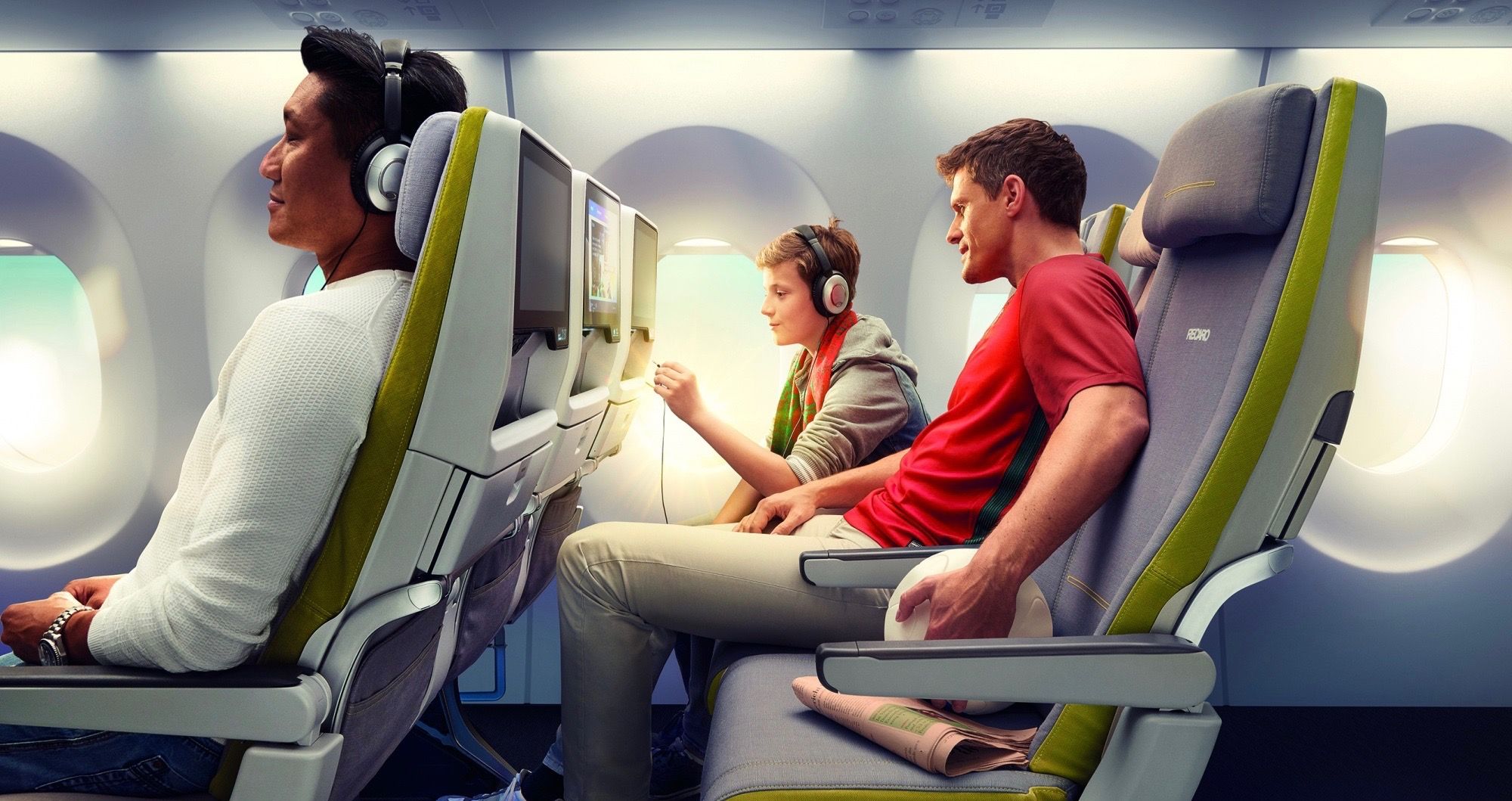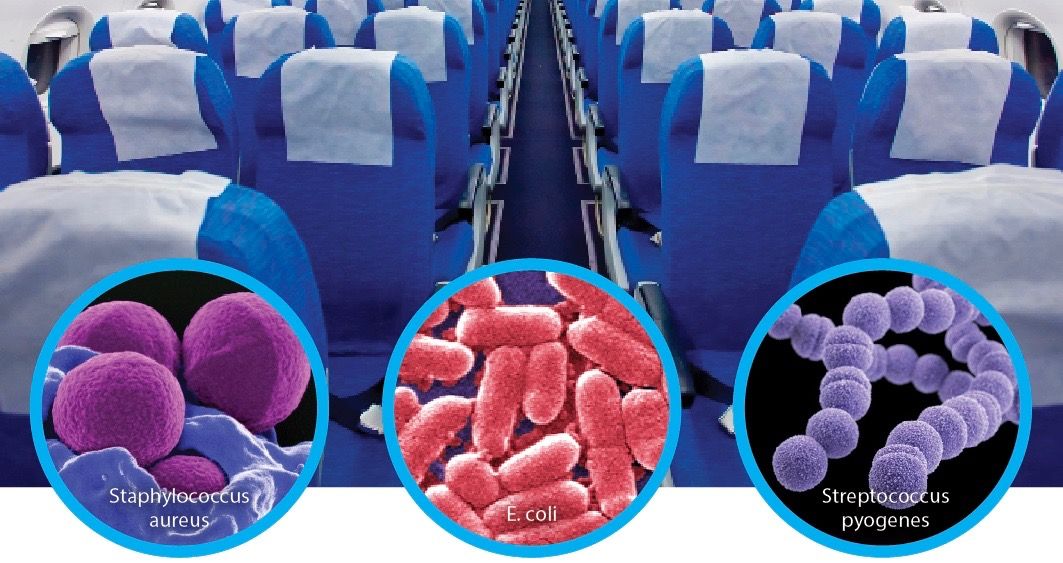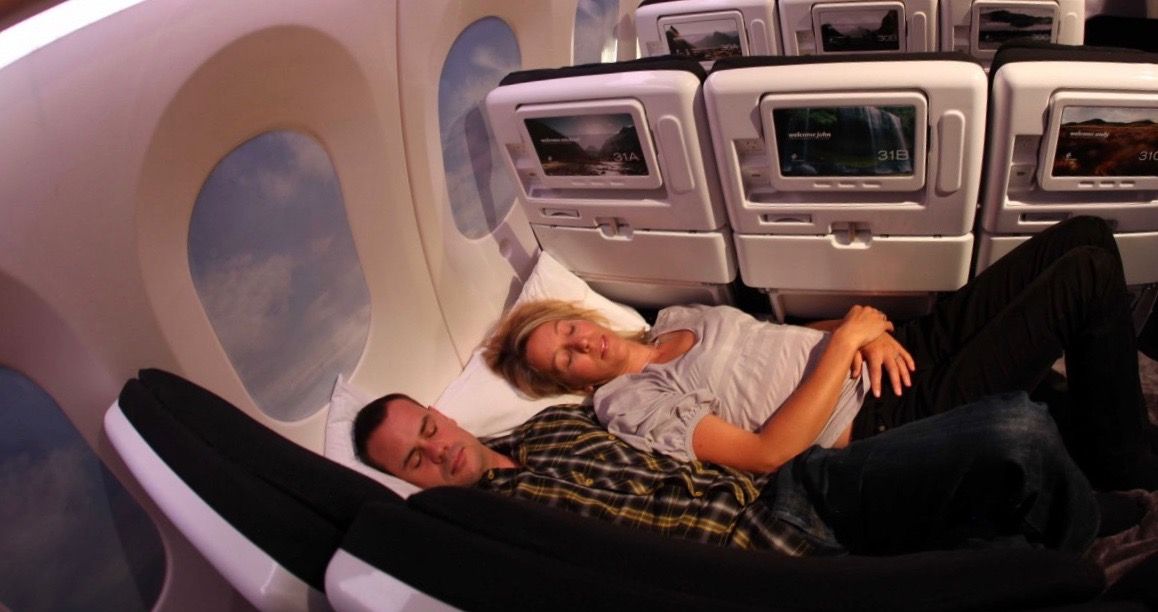Airplane seats can be a hotbed of bacteria, though the days of microbes festering beneath us as we travel may soon be a thing of the past. Recaro Aircraft Seating GmbH, used by Cathay Pacific Airways Ltd., among others, has been developing seats that automatically kill germs within seconds. This innovation comes amid claims that airplanes are a virtual breeding ground for pathogens.
Of course, these seats are initially intended for business class and will appear on the market within the next two years. The chairs are a digitized and customized living area, informing passengers that their seats are in fact clean, according to Recaro CEO Mark Hiller. “The best innovation doesn't help if you cannot show it,” he added. “Individualization is really the key.”
Hiller, who hopes to create “a hotel room in the sky” said the seats would also predict back problems and give massages.
Currently, Recaro, a competitor of Thompson Aero Seating Ltd., Boeing, Zodiac Aerospace, and Rockwell Collins Inc., produces approximately 120,000 plane seats a year. Rockwell Collins, for example manufactures seats coated with an antimicrobial agent, said Alex Pozzi, the vice president of technology and seating development for the company.
As long distance travel becomes more commonplace, passengers are increasingly concerned with their wellbeing. Recently, on a 2008 flight from Boston to Los Angeles, a norovirus spread throughout the plane, resulting in a number of sick passengers.
A report released in January showed that one square inch of a seat-belt buckle can contain 1,100 viable bacteria and fungal cells. Another report, released in 2014, from Auburn University in Alabama revealed that methicillin-resistant staphylococcus aureus (MRSA), a group of gram-positive bacteria, which results in hard to treat infections, can have a lifespan of seven days in fabric. Another common pathogen, E. coli, also found in aircraft cabins, can cause abdominal cramps, bloody diarrhea, and vomiting.
"Our data show that both of these bacteria can survive for days on the selected types of surfaces independent of the type of simulated body fluid present, and those pose a risk of transmission via skin contact," said researcher Kiril Vaglenov of Auburn University.
Though antibacterial materials have been developed for hard surfaces, Recaro hopes to recreate the same technology for fabric. The business-class seats have an estimated value of $95,000. In addition, the company hopes to add soundproofing, as well as light and temperature control to the seats.
“There’s still more to do and more improvement possible,” Hiller said.
Vaglenov said that passengers should be conscious of their hand hygiene and not travel while contagious or with a compromised immune system.



